Compared to Germany’s past chancellors, all of the candidates to replace Angela Merkel are untested; whether they are prepared for the challenges of being Germany’s ninth chancellor remains to be seen, writes Constanze Stelzenmüller. This post originally appeared in the Financial Times.
It’s August, and the living ought to be easy. But Germany votes in eight weeks, and all three candidates vying to replace Chancellor Angela Merkel seem eminently resistible. In a recent poll asking who should be their next leader, 45% of Germans chose “none of the above.” Was it always this way?
The question generates a jolting realization: I have been alive when all eight of Germany’s postwar chancellors were in office. My father wrote speeches for one of them; I worked with another.
To be clear, I was not yet two when Germany’s first chancellor, Konrad Adenauer (1949-1963), was cajoled out of office at age 87, the first of three Christian Democrats. Imprisoned by the Third Reich, he sought reconciliation with its victims and anchored Germany in the West. Ludwig Erhard (1963-1966) set the market liberal policies that enabled the postwar economic miracle. The brief term of Kurt Georg Kiesinger (1966-1969) was overshadowed by rumors about a Nazi past.
His Social Democrat successor Willy Brandt (1969-1974), a refugee in Norway during the war, was revered by younger Germans for falling to his knees at the memorial to the Warsaw Ghetto, and for seeking detente with the Soviet Union. My diplomat father was seconded to his speechwriter team in 1972.
The organizers of the annual press association ball asked my father to write a parody of a Brandt speech, for performance by a comedian. Minutes after he had handed in his draft to the chancellor’s office for approval, his phone rang. Brandt’s chief of staff was shouting down the line: “Stelzenmüller, have you lost your mind? The boss is furious!” Yet the draft came back with a hand-scrawled checkmark of approval — in the green ink reserved for the chancellor. My father kept it all his life.
The Social Democrat Helmut Schmidt (1974-1982) wrangled oil price shocks, domestic terrorists, U.S. President Jimmy Carter, and the stationing of medium-range nuclear missiles in Europe. In the end, his policies divided the country, his coalition, and his party. He lost office to Helmut Kohl in a no-confidence vote — only to become co-publisher of the weekly Die Zeit, and ascend to the status of a mentholated-cigarette-smoking, snuff-snorting national oracle.
At the newspaper, Schmidt was a fierce debater. In an editorial conference dispute over whether the court-martials of World War II deserters should be nullified, Schmidt — who had served in the Wehrmacht despite a Jewish grandfather — insisted that disloyalty must be punished. A lowly newcomer (me) shot back that no loyalty was owed to an illegitimate regime. The former chancellor glared. There was an awful pause; then he asked for my name. There were many more battles. But when I was in hospital once, he sent pale pink roses.
The Christian Democrat Helmut Kohl (1982-1998) was mocked by the German left as a provincial bumpkin. But the wily powerbroker became a towering figure of European politics, presiding over German reunification, the deepening and enlargement of the EU, and the introduction of the euro. Respected by many but liked by few, he was an epic nurser of grudges. His later years were tarnished by scandals over illegal party contributions and lawsuits over his archives. After him came the pugnacious Social Democrat Gerhard Schröder (1998-2005). He had grown up on welfare, the son of a cleaner whose husband had never come back from the war. He led Germany’s first red-green coalition, and sent troops to the Balkans and Afghanistan (but not to Iraq). He also signed off on the Hartz IV labor market reforms that would turn Germany into Europe’s economic powerhouse. Then he destroyed his reputation by joining the board of Gazprom immediately after leaving office.
Merkel, the East German quantum chemist who had grown up behind the Berlin Wall, was perhaps the least likely candidate in this line of succession when she took office in 2005. She is now the West’s longest serving leader. Her legacy is mixed, but her integrity and dedication are beyond doubt. She has steered Germany and Europe through the global financial crisis, the Ukraine crisis, the refugee crisis, the rise of the hard right, and the pandemic. And she gave women hope for equality.
Some of Germany’s greatest chancellors, in sum, were improbable candidates. But all eight were tested by war or other hardships before they gained the highest office. That neither the CDU’s Armin Laschet, the SPD’s Olaf Scholz, nor the Greens’ Annalena Baerbock had to endure similar trials is surely a blessing. Whether that prepares them for the as yet unknown ordeals of being Germany’s ninth chancellor is another question.
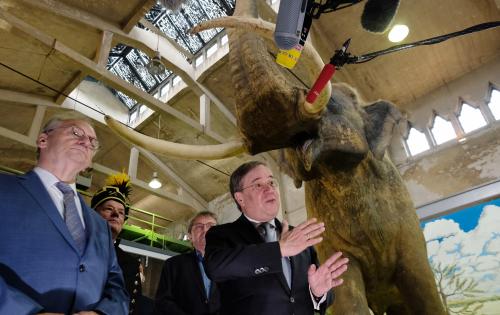
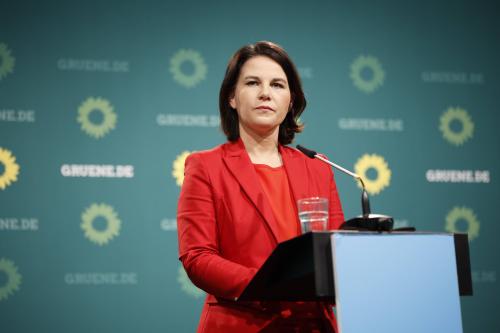
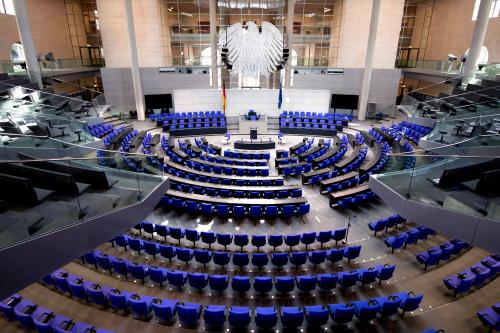

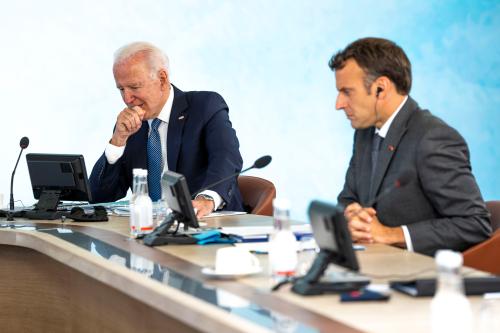
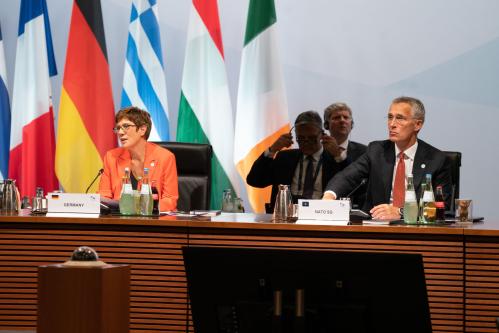
Commentary
“None of the above?”: Germany’s eminently resistible chancellor candidates have escaped the hardships of previous leaders
August 4, 2021